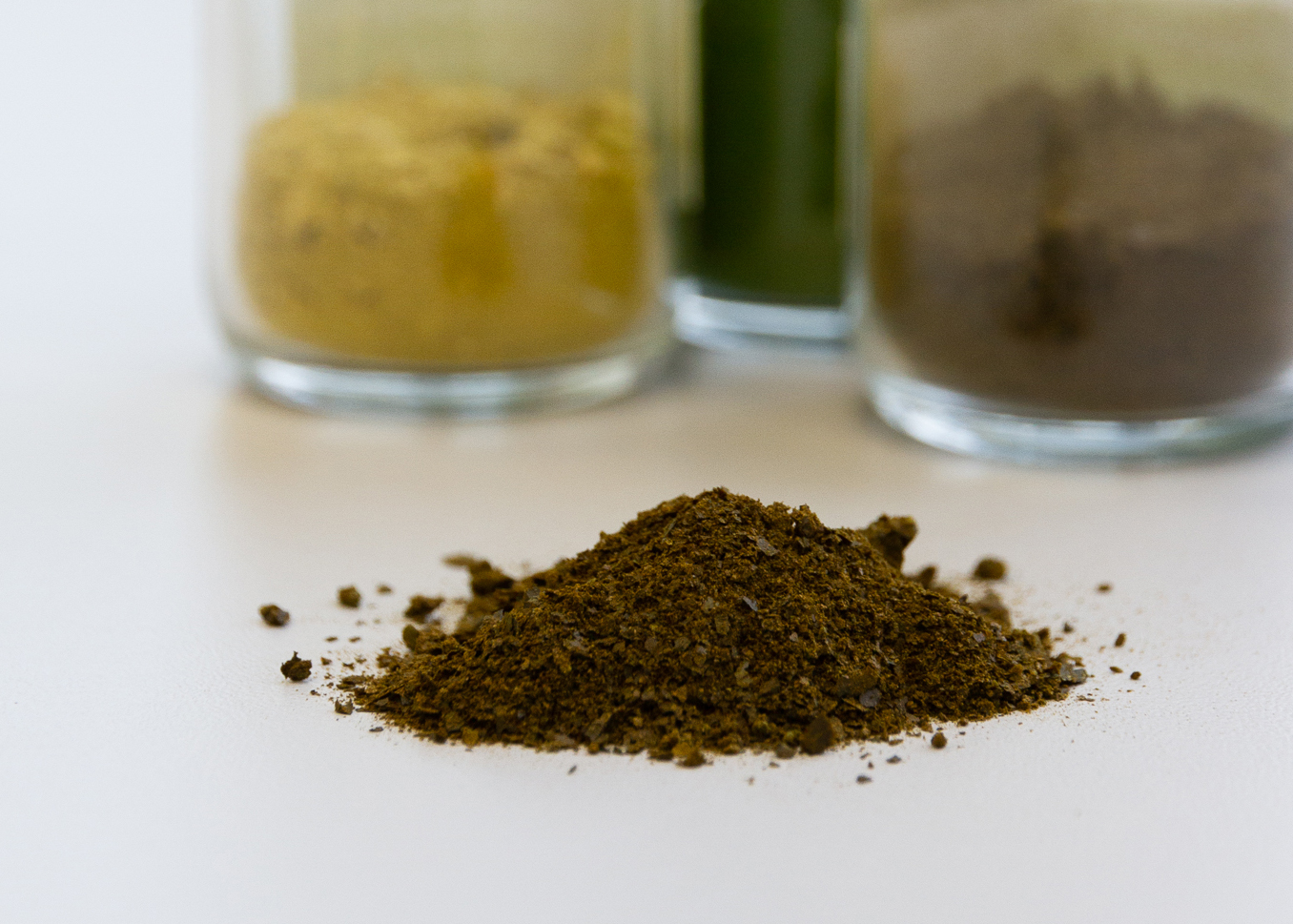The MIATEST project deals with the production of functional ingredients from diatoms and their application in different areas. At Fraunhofer IGB, the production of the ingredients as well as their extraction and purification are optimized.
MIATEST – Functional ingredients from algae for health-promoting food and as plant strengthening agent in viticulture
In the field of microalgae cultivation, the cultivation conditions significantly influence the composition of the biomass. For example, the chrysolaminarin content can be increased from < 5%w/w to > 30%w/w by adjusting the cultivation conditions. Together with the State Research Institute for Viticulture and Fruit Growing, the application of chrysolaminarin as a plant strengthening agent in viticulture is being tested. The aim here is to find an alternative to existing copper‑based fungicides against fungal diseases. The University of Hohenheim is carrying out experiments on the application of the microalgae biomass in the field of human nutrition. Apart from chrysolaminarin, these experiments are mainly focused on the pigment fucoxanthin and eicosapentaenoic acid, an omega‑3 fatty acid.
Fucoxanthin, in particular, has led to considerable interest in the industry, as it shows antioxidant, anti‑inflammatory, anti‑cancer and weight‑reducing properties. At Fraunhofer IGB, a process for obtaining highly pure fucoxanthin (> 90 percent) has already been developed in another project.
Project information
Project title
MIATEST-BW – Production of microalgae ingredients and testing as a health-promoting food for humans and as an environmentally friendly plant strengthening agent in viticulture
Project duration
November 2018 – October 2020
Project partners
- University of Stuttgart, Institute of Interfacial Process Engineering and Plasma Technology (IGVP), Stuttgart (Coordination)
- University of Hohenheim, Institute of Clinical Nutrition, Stuttgart
- State Research Institute for Viticulture and Fruit Growing, Weinsberg
Funding
We would like to thank the Ministry of Science, Research and the Arts of the State of Baden-Württemberg for funding the project "MIATEST-BW", reference n° 7533-10-5-185A.
 Fraunhofer Institute for Interfacial Engineering and Biotechnology IGB
Fraunhofer Institute for Interfacial Engineering and Biotechnology IGB